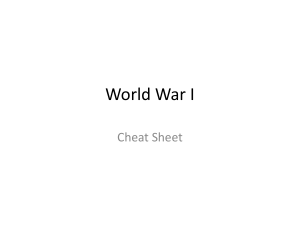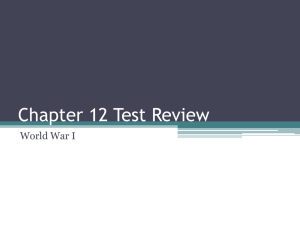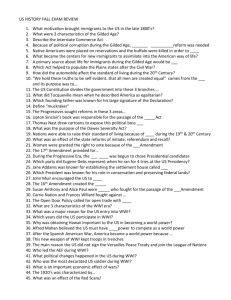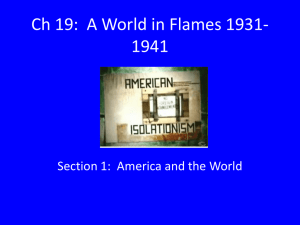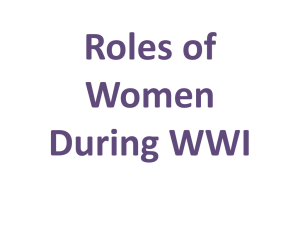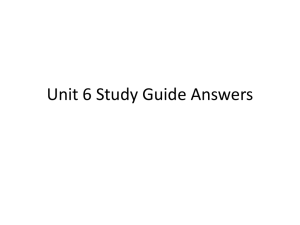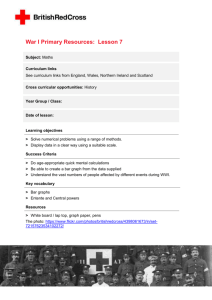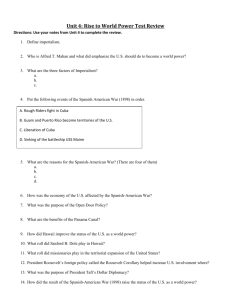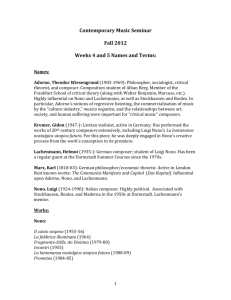Unit Three Study Guide
advertisement
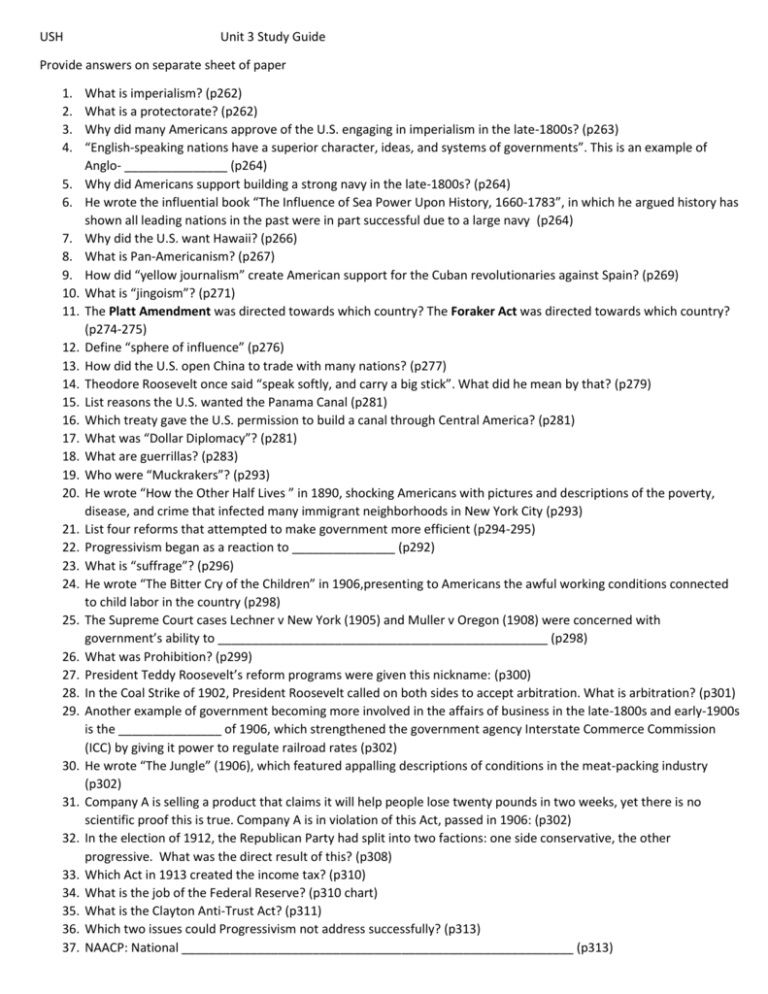
USH Unit 3 Study Guide Provide answers on separate sheet of paper 1. 2. 3. 4. 5. 6. 7. 8. 9. 10. 11. 12. 13. 14. 15. 16. 17. 18. 19. 20. 21. 22. 23. 24. 25. 26. 27. 28. 29. 30. 31. 32. 33. 34. 35. 36. 37. What is imperialism? (p262) What is a protectorate? (p262) Why did many Americans approve of the U.S. engaging in imperialism in the late-1800s? (p263) “English-speaking nations have a superior character, ideas, and systems of governments”. This is an example of Anglo- _______________ (p264) Why did Americans support building a strong navy in the late-1800s? (p264) He wrote the influential book “The Influence of Sea Power Upon History, 1660-1783”, in which he argued history has shown all leading nations in the past were in part successful due to a large navy (p264) Why did the U.S. want Hawaii? (p266) What is Pan-Americanism? (p267) How did “yellow journalism” create American support for the Cuban revolutionaries against Spain? (p269) What is “jingoism”? (p271) The Platt Amendment was directed towards which country? The Foraker Act was directed towards which country? (p274-275) Define “sphere of influence” (p276) How did the U.S. open China to trade with many nations? (p277) Theodore Roosevelt once said “speak softly, and carry a big stick”. What did he mean by that? (p279) List reasons the U.S. wanted the Panama Canal (p281) Which treaty gave the U.S. permission to build a canal through Central America? (p281) What was “Dollar Diplomacy”? (p281) What are guerrillas? (p283) Who were “Muckrakers”? (p293) He wrote “How the Other Half Lives ” in 1890, shocking Americans with pictures and descriptions of the poverty, disease, and crime that infected many immigrant neighborhoods in New York City (p293) List four reforms that attempted to make government more efficient (p294-295) Progressivism began as a reaction to _______________ (p292) What is “suffrage”? (p296) He wrote “The Bitter Cry of the Children” in 1906,presenting to Americans the awful working conditions connected to child labor in the country (p298) The Supreme Court cases Lechner v New York (1905) and Muller v Oregon (1908) were concerned with government’s ability to ________________________________________________ (p298) What was Prohibition? (p299) President Teddy Roosevelt’s reform programs were given this nickname: (p300) In the Coal Strike of 1902, President Roosevelt called on both sides to accept arbitration. What is arbitration? (p301) Another example of government becoming more involved in the affairs of business in the late-1800s and early-1900s is the _______________ of 1906, which strengthened the government agency Interstate Commerce Commission (ICC) by giving it power to regulate railroad rates (p302) He wrote “The Jungle” (1906), which featured appalling descriptions of conditions in the meat-packing industry (p302) Company A is selling a product that claims it will help people lose twenty pounds in two weeks, yet there is no scientific proof this is true. Company A is in violation of this Act, passed in 1906: (p302) In the election of 1912, the Republican Party had split into two factions: one side conservative, the other progressive. What was the direct result of this? (p308) Which Act in 1913 created the income tax? (p310) What is the job of the Federal Reserve? (p310 chart) What is the Clayton Anti-Trust Act? (p311) Which two issues could Progressivism not address successfully? (p313) NAACP: National _________________________________________________________ (p313) 38. 39. 40. 41. 42. 43. 44. 45. 46. 47. 48. 49. 50. 51. 52. 53. 54. 55. 56. 57. 58. 59. 60. Which person is closely associated with the founding of the NAACP? (p313) World War I began in 1914.However, its roots can be traced back to which decade? (p320) The roots of WWI were planted when the German kingdom of Prussia began ________________________ (p320) What is “militarism”? (p321) What is “nationalism”? (p322) Where are The Balkans located? (p322) The assassination of the heir to the Austro-Hungarian throne, ____________, by Bosnian revolutionary ____________, was the spark that started WWI (p322) Which countries were in the Triple Alliance? (p321) Which countries were in the Triple Entente? (p321) Define “propaganda” (p324) When German U-Boats (submarines) sank the _______________, Americans were outraged, and the U.S. inched closer to joining the war (p326) The ____________________, which further infuriated Americans, promised Mexico that if it joined the German war effort Germany would help Mexico regain its “lost territory in Texas, New Mexico, and Arizona” (p327) List three ways the government organized the economy and tried to shape public opinion once the U.S. entered WWI (p328-330) The area between trenches in WWI became known as (p336) Why did Russia leave WWI? (p339) List the new technologies introduced during WWI (p338 chart) The battle at _____________________ sent the Germans into a retreat, and was the beginning of the end of WWI (p340) What was the name of President Wilson’ peace plan at the end of WWI? (p342) What is an “armistice”? (p341) The date WWI ended: (p341) DBQ DBQ DBQ ESSAY QUESTIONS 20 pts each You may create an outline to use on test day • The United States went through an era called “Progressivism” in the early 1900s. Who were the Progressives? What were their goals? Give an example of progressive members of the media (newspapers). What did they do? Who were other progressive individuals, and what did they do? Give examples of Progressivism in politics (pp 292-295). Give examples of how Progressivism was limited in what it could accomplish (p 313). IN YOUR OPINION was the Progressive movement needed? Why or why not? (support your opinion with facts) • World War One. Why did it begin? (pp 320-322) What events drew the U.S. into the war? (pp 324-327) What role did women play in the war effort? (p333) What new technologies were introduced during the war? (pp 338-339). IN YOUR OPINON, was the U.S. justified in entering the war? Can war always be avoided, or is it needed at times? (support your opinion with facts)
